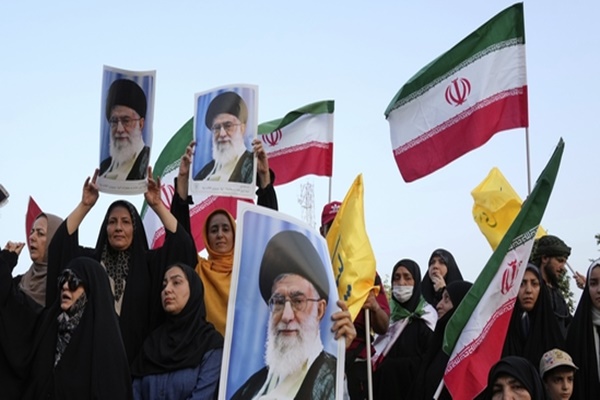Pointers
-
Iran’s Parliament approved a bill to suspend cooperation with the IAEA after U.S. strikes on nuclear sites.
-
Speaker Mohammad Bagher Ghalibaf accused the IAEA of becoming a “political tool.”
-
Iran demands guarantees for the safety of its nuclear facilities before resuming cooperation.
-
Iran’s nuclear program will continue “at a rapid pace,” despite damage from airstrikes.
-
Inspections, surveillance, and reporting to the IAEA will be halted.
-
Iran’s Vice President warned no more bargaining on uranium enrichment.
-
Some officials questioned Iran’s continued membership in the NPT.
-
Diplomatic talks with the U.S. remain on hold, though contacts are ongoing.
-
Esmail Baghaei admitted that nuclear sites were severely damaged.
-
U.S. says the program was set back by a few months; Trump claims it was “obliterated.”
In a bold escalation following U.S. airstrikes on its nuclear facilities, Iran’s Parliament overwhelmingly approved a bill suspending cooperation with the International Atomic Energy Agency (IAEA). The decision came days after strikes reportedly damaged sites in Esfahan, Fordow, and Natanz, raising serious questions about the future of diplomacy and non-proliferation efforts in the region.
Out of 223 lawmakers present, 221 voted in favor of suspending cooperation, with one vote against and one abstention.
What is the NPT (Nuclear Non-Proliferation Treaty)?
The NPT is a global agreement signed in 1970 to stop the spread of nuclear weapons.
It has three main goals:
-
Stop countries from getting nuclear weapons.
-
Help countries use nuclear energy peacefully (like for electricity).
-
Encourage nuclear-armed countries to reduce their weapons.
Iran is a member, which means it must allow inspections and promise not to build nuclear bombs.
Iranian Leaders Question IAEA’s Role, Demand Guarantees
Mohammad Bagher Ghalibaf, Speaker of the Iranian Parliament, criticized the IAEA, saying:
“The IAEA has not fulfilled its duties and become a political tool.”
He added that future cooperation would depend on a report from the Iranian Atomic Energy Authority and the National Security and Foreign Policy Committee, with guarantees required for the protection of Iran’s nuclear infrastructure.
Ghalibaf also dismissed claims from U.S. President Donald Trump, who had asserted that Iran’s nuclear ambitions were “obliterated” after the strikes.
“Iran’s civil nuclear programme will continue at a rapid pace,” Ghalibaf stated.
The motion passed by Parliament explicitly declared that activities such as inspections, surveillance camera installations, and reporting to the IAEA would be halted unless Iran’s nuclear sites were guaranteed protection.
Senior Officials Declare Strategic Shift
Mohammad Reza Aref, Iran’s Vice-President, emphasized a hardened stance:
“We will no longer allow bargaining over enrichment within our country’s territory because we have entered a new space, and the enemy has realised it is not facing the same Iran as before.”
Akbar A’lami, a former MP from Tabriz also questioned Iran’s continued commitment to international treaties like the Nuclear Non-Proliferation Treaty (NPT):
“If our membership in the NPT cannot defend us against military attack or economic sanctions, and in practice becomes a tool of inspection and constant threat, what is the justification for remaining in it?”
Nuclear Damage Acknowledged, Diplomacy on Hold
For the first time, Esmail Baghaei, spokesperson for Iran’s Foreign Ministry, confirmed that the nuclear facilities had been severely damaged—a rare public admission of vulnerability from Iranian leadership.
Meanwhile, diplomatic talks between the U.S. and Iran remain frozen. U.S. Special Envoy Steve Witkoff acknowledged that informal contacts are underway, and President Donald Trump claimed a possible meeting with Iran’s Foreign Minister Abbas Araghchi could happen next week.
The sixth round of talks, originally scheduled for June 15, was cancelled by Iran two days earlier, citing a US-sponsored Israeli attack.
A preliminary U.S. government assessment suggests Iran’s nuclear program has been set back by only a few months, although Trump publicly claimed it had been “wiped out.”
Regional and Global Implications
Iran’s decision to halt IAEA cooperation, paired with internal calls to reconsider NPT membership, signals a major shift in the country’s nuclear strategy. Analysts inside Iran warn that the leadership’s confidence in weathering this crisis without domestic revolt may turn into triumphalism, obscuring real strategic vulnerabilities.
The developments have alarmed global observers, raising concerns over nuclear proliferation, regional stability, and the future of international diplomacy in the Middle East.








